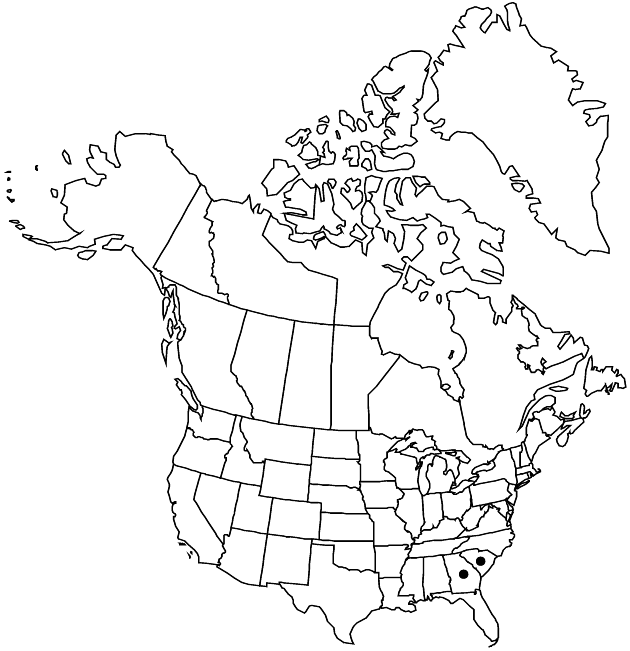Difference between revisions of "Solidago kralii"
Sida 20: 1606, figs. 1–11. 2003.
FNA>Volume Importer |
FNA>Volume Importer |
||
| Line 25: | Line 25: | ||
|distribution=Ga.;S.C. | |distribution=Ga.;S.C. | ||
|discussion=<p>Of conservation concern.</p><!-- | |discussion=<p>Of conservation concern.</p><!-- | ||
| − | --><p>Solidago kralii is closely related to S. simplex, S. plumosa, and S. arenicola but occurs in a different habitat; it is much more copiously viscid-resinous than those species.</p> | + | --><p><i>Solidago kralii</i> is closely related to <i>S. simplex</i>, <i>S. plumosa</i>, and <i>S. arenicola</i> but occurs in a different habitat; it is much more copiously viscid-resinous than those species.</p> |
|tables= | |tables= | ||
|references= | |references= | ||
| Line 49: | Line 49: | ||
|publication year=2003 | |publication year=2003 | ||
|special status= | |special status= | ||
| − | |source xml=https://jpend@bitbucket.org/aafc-mbb/fna-data-curation.git/src/ | + | |source xml=https://jpend@bitbucket.org/aafc-mbb/fna-data-curation.git/src/8f726806613d60c220dc4493de13607dd3150896/coarse_grained_fna_xml/V19-20-21/V20_229.xml |
|tribe=Asteraceae tribe Astereae | |tribe=Asteraceae tribe Astereae | ||
|genus=Solidago | |genus=Solidago | ||
Revision as of 15:21, 18 September 2019
Plants 65–110 cm; rhizomes creeping. Stems 1–10(–50), ascending to erect, glabrous or sparsely strigillose, copiously viscid-resinous in arrays. Leaves: basal gradually tapering to winged petioles, blades oblanceolate, (25–)100–200 × (4–)15–28 mm, membranous, margins shallowly serrate apically (teeth less than 1 mm), finely ciliate, midnerves prominent, faces glabrous, viscid; rosettes present at flowering, at ends of elongated rhizomes, 1st leaves the smallest; proximal to mid cauline similar, sessile, blades linear-elliptic, quickly reduced; mid blades 40–80 × 6–9 mm, reduced distally, margins entire; distal sessile, blades linear-elliptic to linear, 10–35 × 1–3 mm, reduced in arrays. Heads 50–200 (1–15 per branch), in narrowly thyrsiform, paniculiform arrays, 9–30 × 4–5 cm, longer branches ascending, 2–10 cm. Peduncles sparsely strigillose, copiously resinous, naked proximally to bracteolate near heads; bracteoles usually 1–3. Involucres campanulate, 5–7 mm. Phyllaries in 3–4 series, strongly unequal, apices obtuse, rounded to slightly cuspidate, ciliate, sparsely, finely strigose, obscured by exudate, copiously resinous; outer ovate (1.5–2 mm), mid narrowly ovate (3–4 × 1.5 mm), inner linear-lanceolate. Ray florets 3–5(–7); laminae 2.5–3.5 × 1–1.5 mm. Disc florets 10–16; corollas 5–6 mm, lobes 1–1.5(–1.8) mm. Cypselae fusiform to narrowly obconic, 3–5 mm, ribs 5–8, golden brown, darker than intercostal portions, thin, glabrous; pappi 4–5 mm (sometimes strongly clavate). 2n = 18.
Phenology: Flowering Aug–Sep.
Habitat: Turkey oak and pine scrub sandhills
Elevation: 40–100 m
Discussion
Of conservation concern.
Solidago kralii is closely related to S. simplex, S. plumosa, and S. arenicola but occurs in a different habitat; it is much more copiously viscid-resinous than those species.
Selected References
None.
